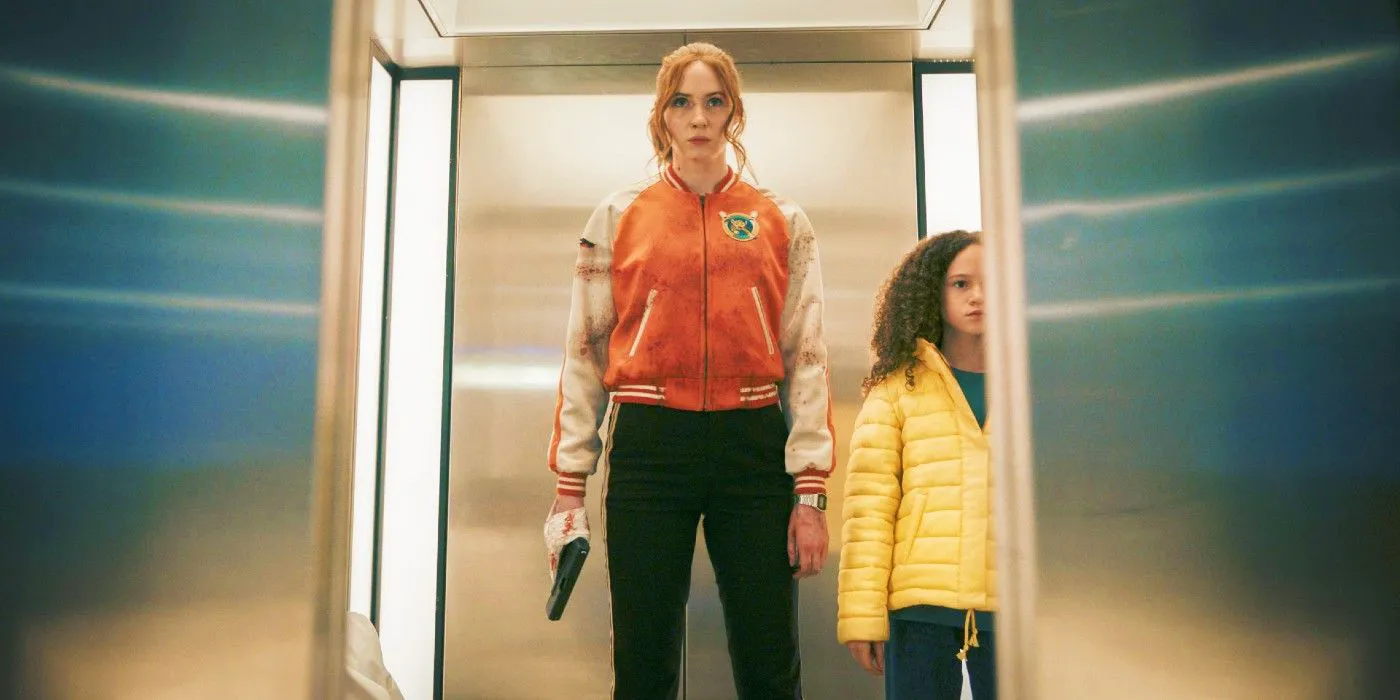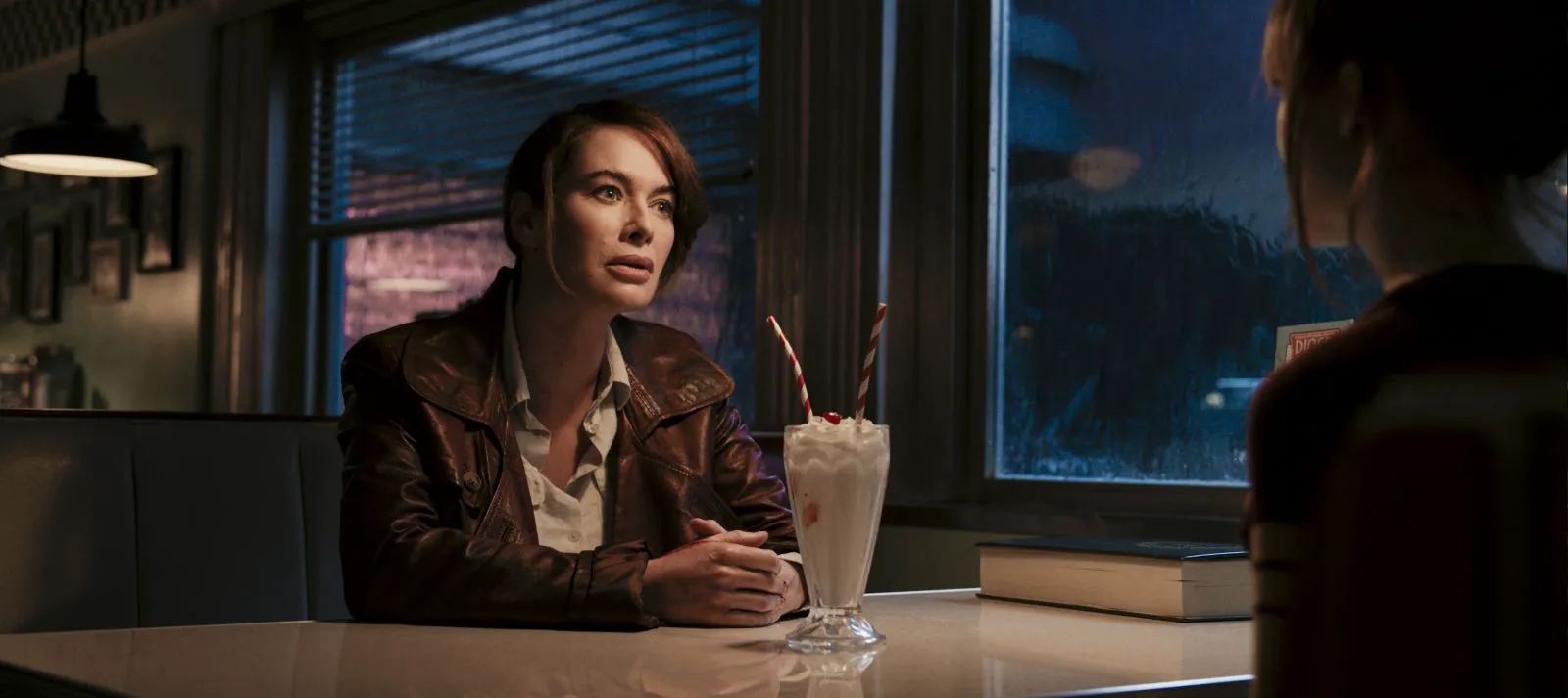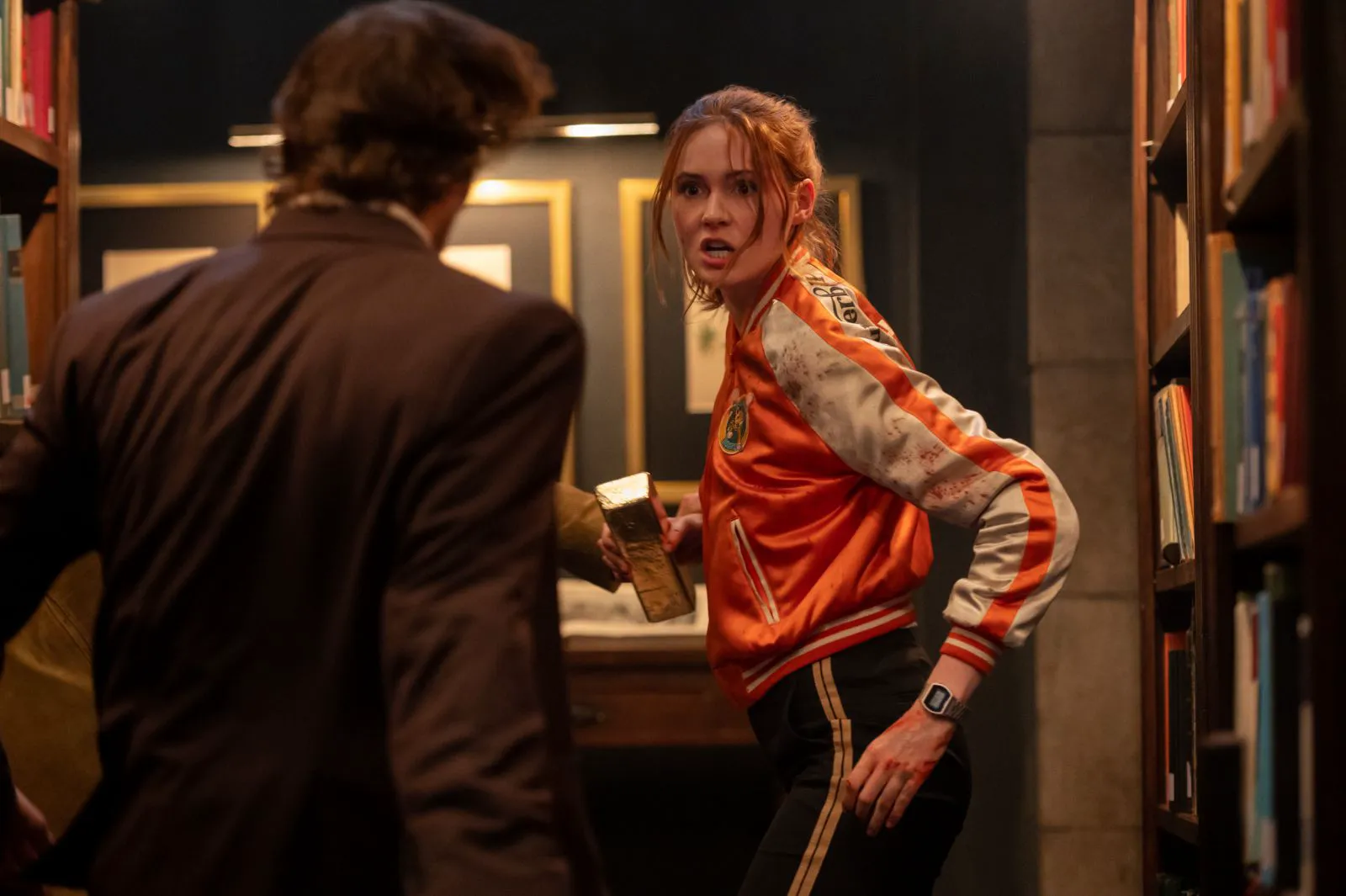Gunpowder Milkshake: A Shot of Female Empowerment with a Twist
Sam (Karen Gillan) never had a choice in her career path. Her mother, Scarlet (Lena Headey), was a professional assassin, and like mother, like daughter. When Scarlet vanishes, Sam inherits her mother’s deadly obligations, becoming a hired killer herself. However, things take a turn when she crosses the wrong mafia bosses, forcing her into hiding. Eventually, her estranged mother and her lethal associates (Angela Bassett, Michelle Yeoh, and Carla Gugino) come to her aid.
Perhaps tired of the routine or rebelling against her servitude, Sam defies her employers, the mysterious “Firm,” and eliminates the son of a Russian mobster. Her handler, Nathan (Paul Giamatti), is powerless and willing to sacrifice Sam to appease the powerful figures backing him. Despite its two-hour runtime, the film’s “us against the world” dynamic, fueled by three generations of fierce women, keeps the action and excitement flowing.

Karen Gillan as Sam in “Gunpowder Milkshake”
Action Choreography Meets Family Melodrama
Director Navot Papushado, known for his horror background, cleverly infuses the film with feminist themes, blending them with choreographed action, family drama, and inspiration from “John Wick” and “Kingsman.” The consequences of separation and criminal injustice are addressed with vengeance and irony, set to a nostalgic soundtrack featuring Janis Joplin, all while adhering to genre conventions without being constrained by them.
“Gunpowder Milkshake” is visually appealing, featuring guns, crossbows, teeth shattered by plaster busts, and an eight-year-old girl (“and nine months!”) driving a bulletproof car. Papushado embraces bold strokes, seemingly planning for the sequel (officially announced last week), aiming to captivate audiences before they wander off to “Black Widow” in the next theater. Neon lights, manga-inspired visuals, and a dark, self-conscious humor create a vibrant summer survival marathon, with a touch of emotional depth. The director pays homage to Ritchie and Tarantino (especially the former) for a happy youth and a carefree future, where no syndicate can threaten the strong female role models at the heart of the story.

Lena Headey as Scarlet in “Gunpowder Milkshake”
Dysfunctional Family Dynamics and Redemption
The mother-daughter duo barely has time to be dysfunctional. The script glosses over their reunion, focusing on what the audience came to see. After a long separation, Scarlet apologizes to Sam for prioritizing her career, and Sam, in turn, decides to be a good mother to Emily, a girl whose father she had to kill. Everyone makes mistakes, fixes them with varying degrees of success, fireworks, and knives, but this female lineage refuses to wither, defying the faceless horde of mercenaries.

Karen Gillan as Sam in “Gunpowder Milkshake”
Strong Performances and a Nod to Genre Tropes
Karen Gillan is transitioning from supporting roles to leading ones, feeling comfortable in the genre. She is supported and even outshone by the quartet of distinctive “aunties,” as they call themselves, still underrated by Hollywood. Headey could easily rival Charlize Theron in “Atomic Blonde,” Bassett and Yeoh differ in temperament but are always quick to act, hinting at a romantic connection. Bassett’s thoughts and tone remain in Wakanda, having traded royal robes for a pantsuit; Yeoh is as choreographically flawless as she was twenty years ago in “Crouching Tiger, Hidden Dragon.” Carla Gugino, as the librarian-gunwoman, adds ironic care for the protagonist.
Like “Black Widow,” “Gunpowder Milkshake” doesn’t break the mold but reinterprets familiar plots, sometimes stumbling over clichés, sometimes loudly avoiding them, to the delight of an uninhibited audience seeking guilty pleasure. The terms “shameful” or “guilty” seem outdated, so it’s best to simply call it pleasure, and this film delivers it.
Towards the end of “Gunpowder Milkshake,” one of the antagonists wearily asks the fighting heroines, “Can’t we stop? I have an army here.” Sam retorts, “And I have my mother.” In this film, blood ties work like a universally approved vaccine: you can protest against it, complaining about excessive emotionality or an offensively preachy message, but it won’t become any less effective.